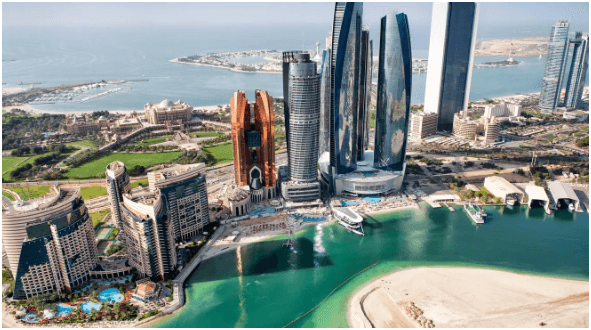UAE: Why Dubai and Abu Dhabi’s Cost of Living Increased in H1 2024
The cost of living in Dubai and Abu Dhabi, two of the most vibrant cities in the United Arab Emirates (UAE), has seen a significant increase in the first half of 2024. This upward trend has been driven by a combination of factors, including inflation, rising real estate prices, increased demand for goods and services, and broader economic dynamics.
Inflation has played a crucial role in the rising cost of living. The UAE’s inflation rate has been influenced by global economic conditions, such as the increase in oil prices and the ripple effects of supply chain disruptions. As oil prices have surged, the cost of fuel and transportation has also risen, impacting the prices of goods and services across the board. This has led to higher costs for essentials such as food, utilities, and transportation, which have significantly contributed to the overall increase in living expenses.
Real estate prices in Dubai and Abu Dhabi have also seen a substantial rise. The property market in these cities is characterized by high demand and limited supply, which has driven prices upwards. The luxury real estate market, in particular, has experienced significant growth, with affluent buyers and investors seeking prime properties. This trend has been fueled by a combination of factors, including the UAE’s attractive tax policies, its status as a global business hub, and the perception of real estate as a safe investment. As property prices increase, so do rental rates, adding to the financial burden on residents.
Another factor contributing to the rising cost of living is the increased demand for goods and services. The UAE has seen a steady influx of expatriates, drawn by the promise of lucrative job opportunities and a high standard of living. This population growth has driven up demand for housing, education, healthcare, and other services, resulting in higher prices. Additionally, the tourism sector, a vital component of the UAE’s economy, has rebounded strongly post-pandemic, further driving up prices in the hospitality and retail sectors.
Broader economic dynamics have also played a part in the rising cost of living. The UAE’s economy is closely linked to global markets, and fluctuations in exchange rates, commodity prices, and international trade policies can have a direct impact on the cost of living. For instance, the appreciation of the US dollar, to which the UAE dirham is pegged, has made imports more expensive, contributing to inflationary pressures.
The UAE government has implemented several measures to mitigate the impact of rising living costs on residents. These include subsidies for essential goods, price controls on certain items, and support for low-income families. Additionally, the government has invested in infrastructure projects aimed at improving the efficiency of supply chains and reducing the cost of doing business. However, despite these efforts, the overall trend has been towards higher living expenses.
The impact of rising living costs is felt across different segments of society. For expatriates, who make up a significant portion of the population in Dubai and Abu Dhabi, higher living costs can erode disposable income and savings. This is particularly challenging for those on fixed salaries, as they may find it difficult to keep up with the increasing expenses. Many expatriates are considering relocating to more affordable areas or even leaving the UAE altogether in search of better economic prospects.
For Emirati nationals, the government provides various forms of support, including subsidies, grants, and housing benefits. However, the rising cost of living still poses challenges, particularly for younger generations entering the workforce and starting families. The increased cost of housing, education, and healthcare can strain household budgets and impact long-term financial planning.
The business community in Dubai and Abu Dhabi is also affected by the rising cost of living. Higher operational costs, driven by increased prices for goods and services, can impact profit margins and competitiveness. Small and medium-sized enterprises (SMEs), which form the backbone of the UAE’s economy, are particularly vulnerable to these cost pressures. Businesses may need to adjust their pricing strategies, streamline operations, or seek efficiencies to remain viable in this challenging economic environment.
Despite the challenges posed by rising living costs, Dubai and Abu Dhabi continue to offer numerous advantages that attract residents and businesses alike. The UAE’s strategic location, world-class infrastructure, and favorable business environment make it an attractive destination for international companies and investors. Additionally, the government is committed to economic diversification and innovation, with initiatives aimed at fostering growth in sectors such as technology, renewable energy, and finance.
In conclusion, the cost of living in Dubai and Abu Dhabi has risen significantly in the first half of 2024, driven by factors such as inflation, rising real estate prices, increased demand for goods and services, and broader economic dynamics. While the government has implemented measures to mitigate the impact on residents, the overall trend remains upward. The rising cost of living presents challenges for expatriates, Emirati nationals, and businesses, but the UAE’s strategic advantages and commitment to economic diversification continue to make it a desirable destination. As the global economic landscape evolves, the UAE will need to navigate these challenges while leveraging its strengths to ensure sustainable growth and prosperity for its residents and businesses.
Stay Connected: ”Your Source for the Latest News Updates”





